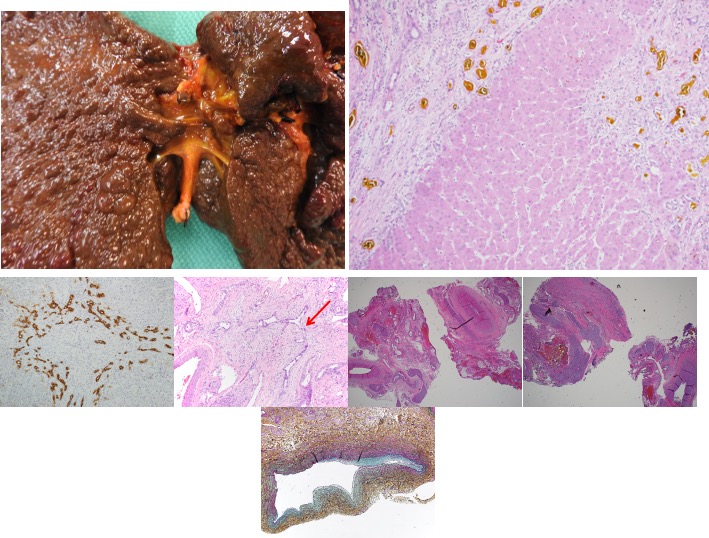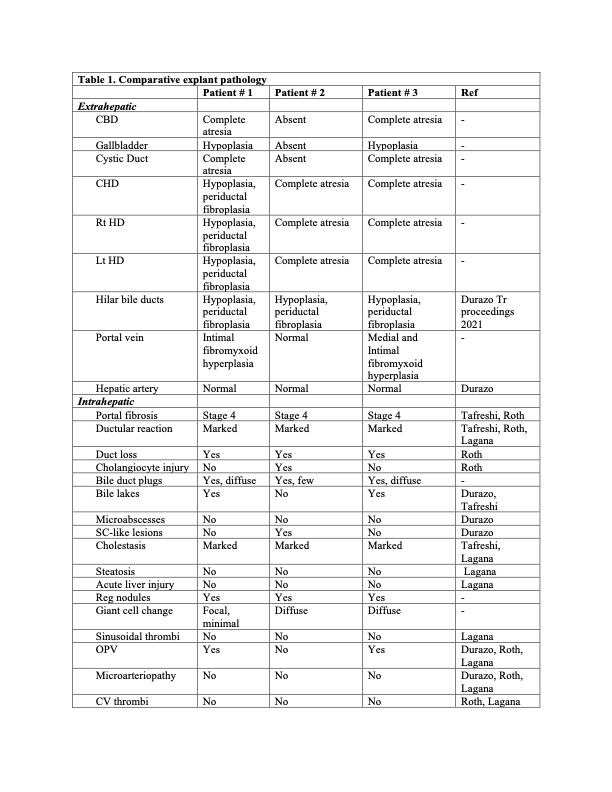COVID-related neonatal cholestasis? Liver transplantation in three infants with perinatal COVID exposure
Shruti Sakhuja1, Kalyani Patel2, John Goss3, Thao Galvan3.
1Pediatrics, Division of Gastroenterology, Hepatology and Nutrition, Texas Children's Hospital, Baylor College of Medicine, Houston, TX, United States; 2Pathology, Texas Children's Hospital, Baylor College of Medicine, Houston, TX, United States; 3Surgery, Division of Abdominal Transplantation, Texas Children's Hospital, Baylor College of Medicine, Houston, TX, United States
Introduction: The COVID pandemic presents a unique set of challenges during pregnancy including thromboembolic complications, direct placental infection, transplacental transmission, and systemic hyperinflammatory state. Post-COVID cholangiopathy leads to marked cholestasis with ongoing jaundice that persists long after other organs have recovered from infection. We identified a cohort of infant patients who had perinatal exposure to SARS-CoV-2 and then were found to have significant neonatal cholestasis of undetermined cause. These patients underwent orthotopic liver transplant and we present here a potentially new cause of neonatal cholestasis related to SARS-CoV-2.
Methods: Retrospective case review of three infants with perinatal SARS-CoV-2 exposure in 2020 who had persistent cholestasis and extrahepatic biliary obstruction (mimicking biliary atresia), suggesting cholangiopathy, and histologic review of explant liver pathology.
Results: All three patients described in this case series had perinatal exposure to SARS-CoV-2 in 2020 and developed liver failure shortly after birth in the setting of low GGT cholestasis with histologic evidence of extrahepatic biliary obstruction. All three required liver transplantation within the first year of life during 2021.


Conclusion: Though post-COVID cholangiopathy is described in adults in the literature, our series is unique in that it is the first to describe this phenomenon in infancy, with two insults presumably occurring in utero. Additionally, none of our infants had moderate or severe COVID infection but still progressed to advanced liver disease requiring liver transplant. Though further studies are needed to prove causality, our case series certainly raises the question that SARS-CoV-2 may cause in utero or early life insults to the developing liver that may lead to cholangiopathy and end stage liver disease.

right-click to download
